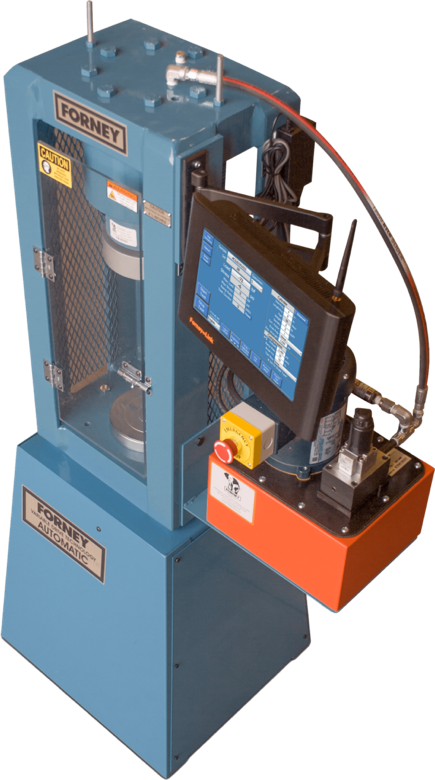The crushing strength of concrete – also known as compressive strength – is one of the most important measurements that tells construction projects a lot about the quality and safety of the material. Here’s what this means and what equipment you’ll need to test for it.
The crushing strength of concrete is the ability of concrete to carry a compressive load on its surface without any crack or deflection. Compressive strength depends on a number of factors, including wet concrete mix consistency (slump), air content, weight and temperature. Also, the way a technician casts and transports cylinders to bring to the lab to cure – and the conditions of the curing room or area itself – can impact the ultimate strength of concrete.
Because there are so many factors at play, precision is necessary at every step – especially when it comes to testing the crushing strength of concrete. And this precision comes from the equipment you use to run the test.
Recommended Equipment for ASTM C39/C39M
ASTM International is a globally recognized organization that develops and delivers testing standards. ASTM C39/C39M outlines the proper procedure for testing the compressive strength of concrete cylinders. Before you conduct this test, please be sure to refer to the current ASTM standards.
Besides ancillary equipment you will need to conduct wet concrete tests and cast, cure and prepare the concrete cylinder for testing, the most important piece of equipment you will need to conduct this test is a compression machine.

What Is a Compression Testing Machine?
A compression testing machine is commonly used for high-strength concrete cylinder testing and is available in a variety of frames with a range of load capacities.
There are different types of compression testing machines depending on the testing environment. Standard machines are versatile, durable and dependable for conventional lab testing environments. More demanding environments might require high stiffness or high-capacity machines designed for larger specimens or high strength materials.
Compression Testing Machine Features
- Manual or automatic control: Automatic control is recommended to ensure a consistent load and highly accurate and repeatable results.
- Lexan safety doors for test viewing: ASTM C39 recommends testing machines be equipped with protective guards because high-strength concrete cylinders rupture more intensely than normal strength cylinders.
- Ultra-rigid, welded steel frames that meet or exceed industry requirements.
Forney compression machines provide uncompromising durability, performance and productivity for use in the field and the lab. Find yours today.